Marie Curie Grants
Marie Curie Grants
Marie Skłodowska-Curie actions (MSCA) are European research grants available to researchers regardless of their nationality nor field of research. In addition to generous research funding, scientists have the possibility to gain experience abroad and in the private sector, and to complete their training with competences or disciplines useful for their careers. Before January 2014, the Marie Curie fellowships was named Marie Curie fellowships (MC). The objective of MSCA is to support the career development and training of researchers – with a focus on innovation skills – in all scientific disciplines through worldwide and cross-sector mobility.
For this, the MSCA provide grants at all stages of researchers’ careers, from PhD candidates to highly experienced researchers, and encourage transnational, intersectoral and interdisciplinary mobility.
More information can be obtained at: http://ec.europa.eu/research/mariecurieactions
Under H2020, BGSMath is hosting two MSCA Individual Fellowship and three Training Networks.
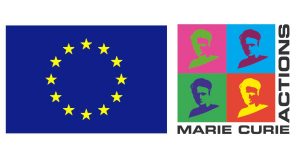
INDIVIDUAL FELLOWSHIPS

Matt Hennessy, CRM (Mathematical Modelling)
Acronym: Nanoheat
Project Reference: 707658
Nanotechnology is currently the focus of extensive research due to its broad range of applications in fields relating to medicine, manufacturing, environment, and energy. Despite substantial research efforts, many breakthroughs in these areas are the result of trial and error, since the mathematical framework, which could provide a theoretical understanding, does not exist. This is partly because classical theories of heat transfer and phase change, which are relevant to the design and use of novel nanodevices, breakdown on the nanoscale. The focus of this research is, therefore, to develop and analyse novel mathematical models describing nanoscale heat transfer and phase change. Exact, approximate, and numerical solutions will be obtained in order to gain practical insights into these processes. To ensure the models and results are realistic and of use to nanoscience researchers, this research is carried out in collaboration with members of the Inorganic Nanoparticles Group of the Catalan Institute for Nanoscience and Nanotechnology, and the Statistical Physics Group at the Autonomous University of Barcelona. The project, which is truly multi-disciplinary, bridges the gap between mathematics and nanotechnology.
Start date: 12/09/2016
End date: 1/09/2018
More info about Matt Hennessy here.
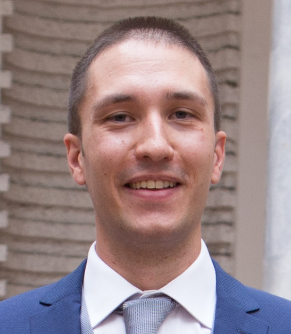
Short Description
These functions proved to be very hard to understand in general. However if the singularities of the ring are mild we expect a more regular behaviour. For example, for quotient singularities it is known that the F-signature is the reciprocal of the order of the acting group, and the same holds for the symmetric signature in dimension two. We expect that this is true in higher dimension as well. Moreover, using techniques from algebraic geometry and representation theory, we will investigate the shape of these signature functions as a whole, and not only their asymptotic behaviour, which is used to define the corresponding invariants.
Start Date: 15/02/2017
End Date: 14/02/2019
More info about Alessio Caminata here.
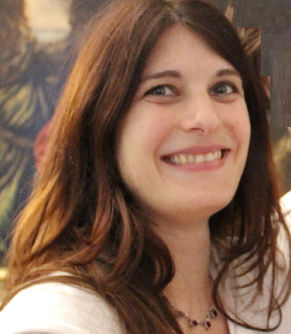
Anna Miriam Benini, UB (Dynamical Systems)
Acronym: CoTraDy
Project Reference: 703269
Short description
Complex dynamics studies the evolution of a complex manifold under the action of a holomorphic map. In this proposal, we study the dynamical systems generated by transcendental (either entire or meromorphic) maps acting on the complex plane. By using a wide range of classic and new techniques, we investigate specially the combinatorics of these maps: that is to say, we build relations between the dynamics of the transcendental map on some specific subset of the complex plane and the dynamics of the shift map on the space of infinite sequences over the integers. Combinatorics in this setting is a powerful tool to understand the dynamics of transcendental maps and to understand the structure of specific families of transcendental maps. The study of combinatorics for transcendental maps is also likely to offer new insights in the combinatorics for rational maps and possibly in other areas of complex dynamical systems, like the systems generated by the iteration of holomorphic maps on manifolds with more than one complex dimension.
Start date: 1/09/2017
End date: 31/08/2019
More info about Anna Benini here.
NETWORKS

Algebraic Representations in Computer-Aided Design for complEx Shapes (ARCADES)
Marie Skłodowska Curie Action – Innovative Training Network (ITN)
Start date: 01/2016
End date: 12/2019
ARCADES aims at disrupting the traditional paradigm in Computer-Aided Design (CAD) by exploiting cutting-edge research in mathematics and algorithm design. Geometry is now a critical tool in a large number of key applications; somewhat surprisingly, however, several approaches of the CAD industry are outdated, and 3D geometry processing is becoming increasingly the weak link. This is alarming in sectors where CAD faces new challenges arising from fast point acquisition, big data, and mobile computing, but also in robotics, simulation, animation, fabrication and manufacturing, where CAD strives to address crucial societal and market needs. The challenge taken up by ARCADES is to invert the trend of CAD industry lagging behind mathematical breakthroughs and to build the next generation of CAD software based on strong foundations from algebraic geometry, differential geometry, scientific computing, and algorithm design. Our game-changing methods lead to real-time modelers for architectural geometry and visualisation, to isogeometric and design-through-analysis software for shape optimisation, and marine design & hydrodynamics, and to tools for motion design, robot kinematics, path planning, and control of machining tools.
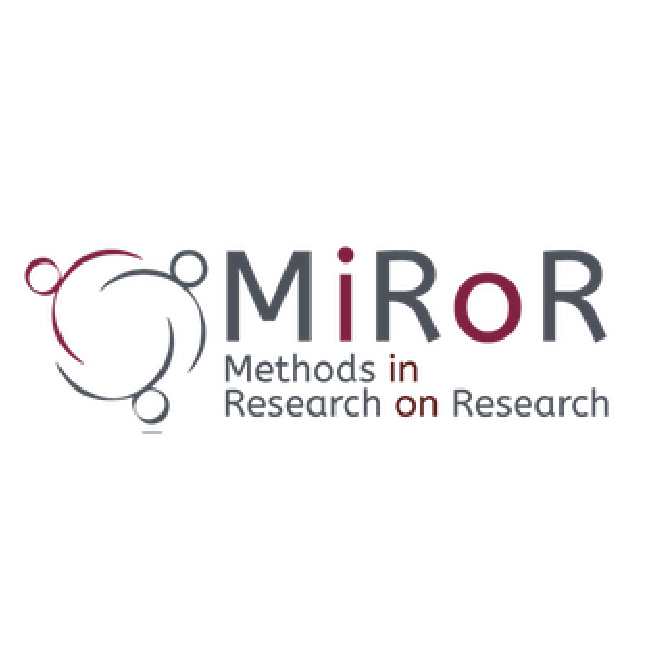
Methods in Research on Research (MIROR)
MarieSkłodowska Curie Action – Innovative Training Network (ITN) – European Joint Doctorate.
End date:
Research on Research is an emerging new scientific discipline that aims to identify and minimise persistent threats to medical research quality. Our aim is to create, in Europe, an innovative and ambitious multidisciplinary intersectoral joint doctoral training programme, dedicated to Methods in Research on Research (MiRoR) in the field of clinical research.
Our overarching aim is to train the future generations of top-level scientists in Research on Research and to develop creative solutions to transform clinical research practice and increase its value.
MiRoR is a joint doctoral programme on Methods in Research on Research in clinical research, involving 15 early-stage researchers (ESRs, i.e. PhD students).
We will:
- Prepare students for envisioning the future challenges in clinical research and find innovative solutions to face them
- Train students to go well beyond the state-of-the-art in their research
- Help students think differently, taking advantage of the multidisciplinary expertise and intercultural diversity of the network
- Teach students how to move from research to action and convert knowledge and idea into a product
- Help students to develop skills to match the public and private sector needs and create new professional opportunities.
Link: http://miror-ejd.eu/
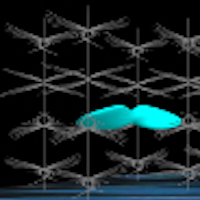
Metric Analysis for Emergent Technologies (MAnET)
Marie Slodowska Curie Action – Innovative Training Network (ITN)
End date:
BGSMath PI: Albert ClopShort summary
MAnET is devoted to the training of young researchers on new frontier of mathematics and its applications.
The aspects of the program are:
- Individual Research program with structured courses
- Network-wide multidisciplinary training events with private sector participation;
- Secondments through other research centres or private companies.
The scientific objective of the project is to develop new and highly sophisticated instruments of metric analysis in rich geometrical setting, non isotropic or non regular.
Non isotropic problems arise while describing the motion of a system in which some directions are not allowed by a constraint, as models of the visual cortex or robotics, or traffic dynamic. Non regular metric analogue of differential objects arise as limits of regular surfaces, or minima of a functional. The differential instruments are no more sufficient to handle these objects and have to be replaced by instruments of geometric measure theory: mass transportation, and singular integrals. These results will open the possibility of affording a large spectrum of emergent technological problems from human to computer vision and medical imaging from eye path tracking to traffic dynamics and robot design.
